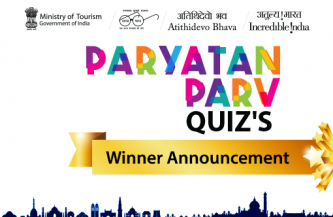World Water Day 2017

It comes once a year but it is an overwhelming warning to value the greatest boon to mankind – Water. World Water Day honors water and draws focus on those who are bereft of it. This occasion is a persuasive aide-memoire to the human world to deal with the global water crisis.

World Water Day is part of the round-the-world drive to provide clean water for everyone. It is a day of understanding the value of water, engage oneself to find ways to preserve it and turn those intentions into action. The United Nation commemorates this for the 24th year along with various governments and collaborators. Every year, a different theme is fixed by the UN.

The UN’s latest report is alarming as it indicates that by the year 2030, global water reserves would not suffice to meet more than 60% of the world’s wants. The World Water Development Report, made this public a day before the World Water Day, which said that the demand for water around the world will increase by 55% in the coming 15 years.

The inadequacy of water in the times to come can be due to weather fluctuations, seen in the form of anomalous rainfall and decline in groundwater. Agriculture, ecosystems and economies would bear the brunt of these scarcities. Shortage of water would also take its toll on the health of the living world.

Contemporary policies aimed at saving water and better treatment of wastewater, could reduce some of the shortage. However, unless the scales strike a friendly balance between demand and limited supplies, we have to be prepared to come face to face with a severe global water deficit. Today, 1.8 billion people round the world have no choice but to drink water polluted with human and animal waste, exposing them to cholera, dysentery, typhoid and polio.
“If there is magic on this planet, it is contained in water”.
– Loran Eisley
This American anthropologist, educator, philosopher may be referring to magic but he has indicated water as a miracle of sorts. India has a huge population makes it susceptible to the dearth and scarcity of this elixir of life. World Water Day is more a solemn occasion than a festivity. The presence of fresh water reserves may give us a reason to celebrate but it also comes with a reminder to conserve and protect them for our descendants, so it is a blend of a remembrance as well as a resolve. How we manage our present shall ascertain what our tomorrow will be.

Universally, the larger portion of the wastewater from our houses, towns, factories and agriculture is simply discarded into the environment without being processed or recycled. This invites environmental contamination and loss of valuable nutriments and other constituents that could be recovered. Rather than losing wastewater, it should be reduced, reused and to a limit, reprocessed. Domestically speaking, greywater can be used to water lawns and land. Likewise in urban areas, wastewater can be used again for green spans. In terms of factories and farming, such sources of water can be used for the treatment of cooling units and in irrigation.
By making the most of this precious resource, our endeavor to a successful water cycle will succeed for all living beings. Additionally, we can target to attain the practically possible goal of reducing the portion of unprocessed wastewater and augmenting water recirculation and secure reprocessing.

The Ministry of Environment, Forest and Climate Change (MoEFCC) commemorated the World Water Day 2017 in India on the 22nd March. Dressed in a novel theme every year, World Water Day accentuates a particular feature of freshwater. This year’s theme of World Water Day 2017 was “Wastewater”.
Secretary, MoEFCC, Shri Ajay Narayan Jha, inaugurated an exhibition to observe the event. The exhibition titled “Jal Hai To Kal Hai” was held to bring about consciousness on conservation of water. A group of school children used Performing Art to convey the awareness message. This exhibition on water conservation was held in collaboration by the National Museum of Natural History (NMNH), a subordinate office of Ministry of Environment, Forest & Climate Change, Central Pollution Control Board (CPCB), Central Ground Water Board (CGWB), Ministry of Water Resources, River Development and Ganga Rejuvenation. Top executives and other officials of MoEFCC were present at the function.





